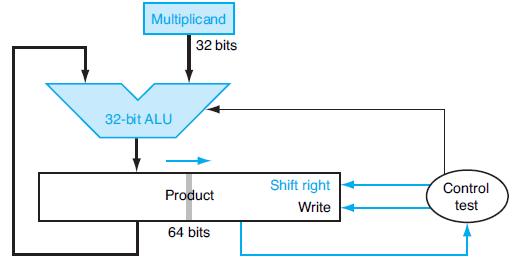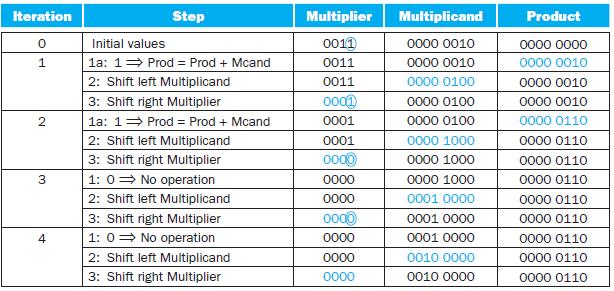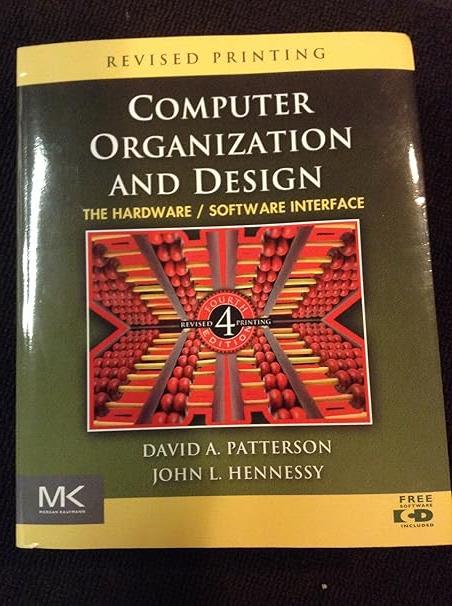When shifting a register one bit to the right, there are several ways to decide what the
Question:
When shifting a register one bit to the right, there are several ways to decide what the new entering bit should be. It can always be a zero, or always a one, or the incoming bit could be the one that is being pushed out of the right side (turning a shift into a rotate), or the value that is already in the leftmost bit can simply be retained (called an arithmetic shift right, because it preserves the sign of the number that is being shift). Using a table similar to that shown in Figure 3.7, calculate the product of the 6-bit two’s complement numbers A and B using the hardware described in Figure 3.6. The right shifts should be done using an arithmetic shift right. Note that the algorithm described in the text will need to be modified slightly to make this work—in particular, things must be done differently if the multiplier is negative. You can find details by searching the web. Show the contents of each register on each step.
Figure 3.6
Figure 3.7
The following table shows pairs of octal numbers.
Step by Step Answer:

Computer Organization And Design The Hardware Software Interface
ISBN: 9780123747501
4th Revised Edition
Authors: David A. Patterson, John L. Hennessy





